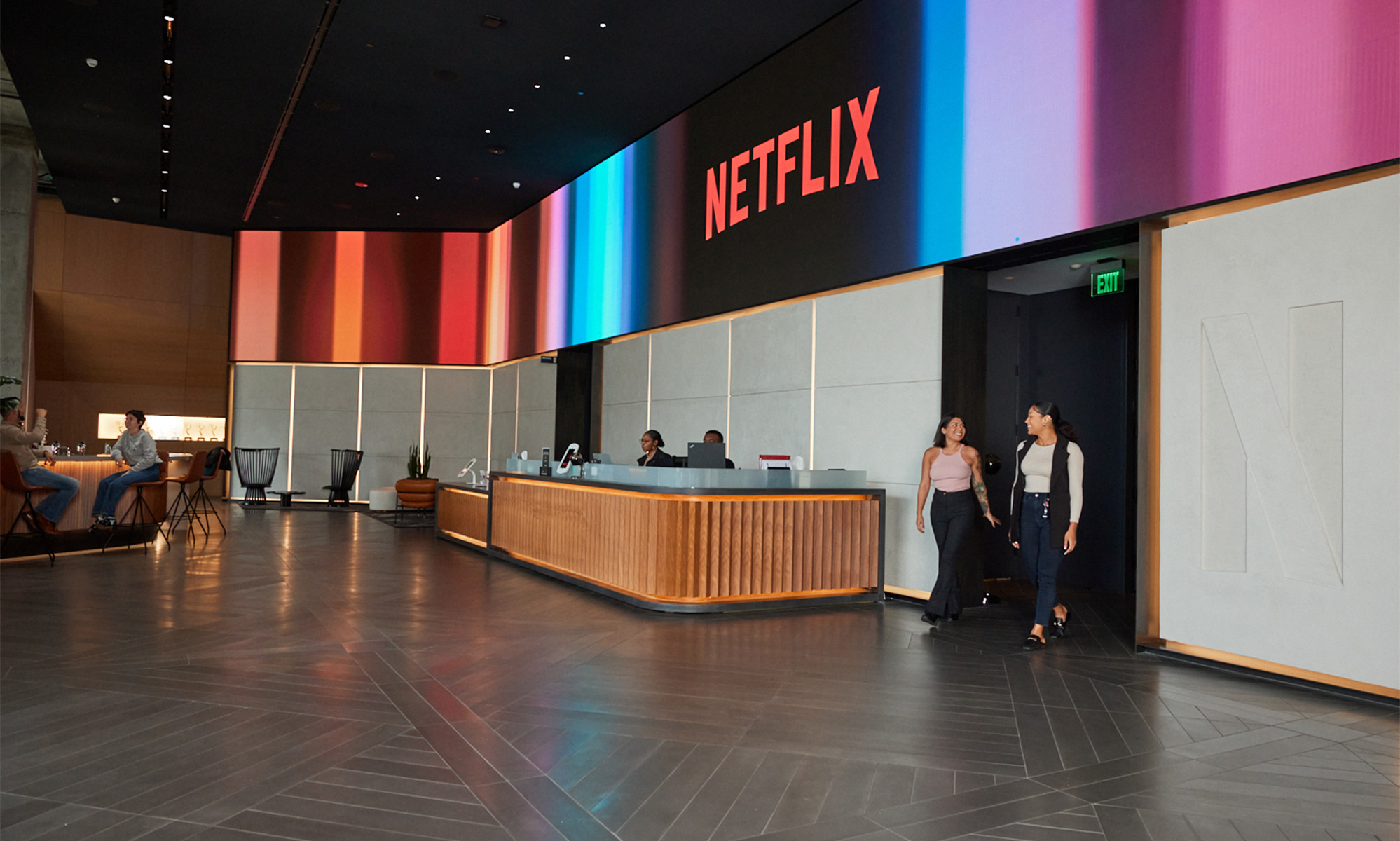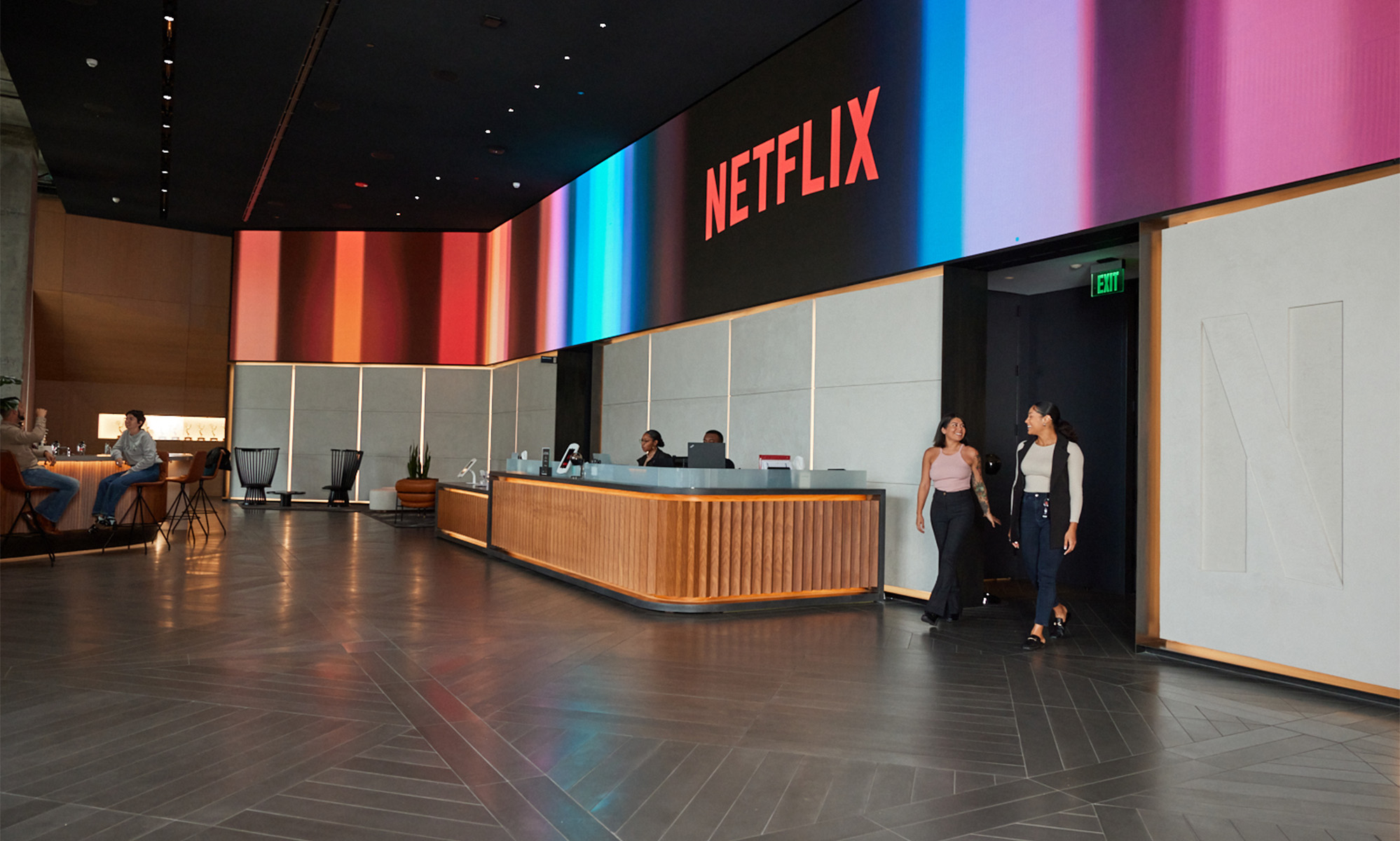The advent of generative artificial intelligence (AI) brought a windfall for the "Magnificent Seven," which quickly became some of the market's best-performing stocks. The popular collective includes Meta Platforms, Apple, Amazon, Alphabet, Microsoft, Nvidia, and Tesla. These companies, which boasted years of previous experience with AI, became the toast of Wall Street.
However, over the past year or so, investors have increased their expectations for these market leaders and found them wanting. Heady growth has slowed -- and in some cases, reversed course -- and fair-weather investors are moving on.
At the same time, one highflier -- which was unceremoniously left out of the collective -- has outperformed every single member of the Magnificent Seven: Netflix (NFLX +3.17%). The streaming pioneer has soared 94% over the past year (as of this writing), more than double the returns of the Mag Seven stocks.
Netflix just released its most recent financial report and is looking to put more distance between itself and its once high-flying peers.

Image source: Getty Images.
By the numbers
Netflix just reported its second-quarter results, which beat expectations across every critical metric. Revenue of $11.08 billion rose 13% year over year, resulting in robust profit growth, as earnings per share (EPS) of $7.19 soared 47%. Revenue growth was driven by strong subscriber gains and rising digital ad revenue. Profits were driven higher by expanding operating margins that increased 690 basis points to 34.1% and the timing of expenses.
For context, analysts' consensus estimates were calling for revenue of $11.04 billion and EPS of $7.06, so Netflix surpassed expectations with room to spare. As a reminder, the company no longer reports subscriber numbers, a metric it abandoned at the end of last year.
Management noted that Netflix "experienced healthy year-over-year growth," with every region posting double-digit, foreign exchange-neutral gains. Member growth, which surged late in the quarter, exceeded Netflix's forecast and is expected to boost revenue in Q3. The U.S. and Canada saw the most notable increase, with sales growing 15% compared to 9% in the first quarter, thanks to the company's most recent price increase.
Netflix also completed the rollout of its Netflix Ad Suite, its proprietary first-party adtech platform, to all 12 countries that offer a "Netflix with Ads" plan. This will help take the company's ad revenue to the next level.
A blockbuster slate
Netflix expects the good times to continue. Management is guiding for third-quarter revenue of $11.5 billion, up more than 17%, while EPS of $6.87 would represent growth of 27%. Furthermore, management increased its full-year outlook, forecasting revenue of $45 billion at the midpoint of its guidance, up from $44 billion. The company also increased its operating margin forecast to 29.5%, up from its previous level of 29%.
Management cited a strong slate of programming for fueling its strong current results and for driving its decision to boost guidance. Squid Game season 3, though it was released late in the quarter, is already the sixth-biggest series opener in Netflix history. Q2 favorites included its hit series Sirens, Secrets We Keep, and Ginny & Georgia, while German-language film Exterritorial became Netflix's fourth-most popular non-English film ever.
A particularly notable entry was KPop Demon Hunters, which was one of the streamer's biggest animated films ever. Songs featured in the movie (by fictional bands) continue to break K-pop records, making it the highest-charting soundtrack of 2025 on the Billboard 200, with seven songs from the soundtrack in the Billboard Hot 100. Meanwhile, the song Golden hit No. 1 on the Billboard Global Charts, making it the biggest song in the world. This all helped cement the movie as a global phenomenon.
Don't take Netflix's word for the quality of its programming. Earlier this week, the streamer received 120 Primetime Emmy nominations across 44 titles. Of note were Adolescence, Black Mirror, and Monsters: The Lyle and Erik Menendez Story.
The second half of the year promises an even stronger slate of programming, including:
- Stranger Things, season five
- Wednesday, season two
- Nobody Wants This, season two
- Alice in Borderland, season three
- Happy Gilmore 2
- Tyler Perry's Madea's Destination Wedding
- Wake Up Dead Man: A Knives Out Mystery
- Troll 2
With a stellar lineup waiting to carry the baton, it looks like Netflix is poised to continue its winning ways.

NASDAQ: NFLX
Key Data Points
Time to buy?
Given the stock's strong run, investors are undoubtedly asking themselves if it's too late to buy Netflix or add to an existing position. The company's strong pricing power, growing ad revenue, and track record of successful programming make for a compelling value proposition. At 41 times next year's earnings, the stock is selling for a heady premium, which might be off-putting to some investors. For those concerned by the valuation, I'd suggest buying on any weakness or using dollar-cost averaging to ease into the stock.
Wall Street seems to agree. Of the 48 analysts that offered an opinion in July, 31 rate the stock a buy or strong buy, and none recommend selling. Pivotal Research is particularly bullish on Netflix, with a Street-high price target of $1,600, which represents potential gains for investors of 26%. The analysts suggest that Netflix "remains underpenetrated globally," offering a "compelling price to entertainment value."
Given Netflix's history of growth, I believe there's much more to come for the streaming pioneer.





